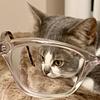You need to sign in or sign up before continuing.
Take a photo of a barcode or cover
My struggle with this book can be summed up in my reaction to the last chapter. Ms. Taylor meets a man who has moved on from church, as she also has by this point, who says the good news of Christ is that we have all we need to be human.
Of all the ways people could describe the good news of Christ, this is not one I can get behind.
It's a heart-breaking memoir of someone who gave her life to serving the church body, but suffered a terrible burnout. Her care for people is obvious. And while she is undeniably spiritual, she is certainly not exclusively Christian.
Of all the ways people could describe the good news of Christ, this is not one I can get behind.
It's a heart-breaking memoir of someone who gave her life to serving the church body, but suffered a terrible burnout. Her care for people is obvious. And while she is undeniably spiritual, she is certainly not exclusively Christian.
hopeful
inspiring
reflective
medium-paced
The author is a very good storyteller. This book included a lot of introspection which made it a bit slow at times. I found it interesting to hear about how a different denomination runs things. I appreciated her story and her insights. I am curious to read more of her books because I like seeing how she thinks.
emotional
hopeful
inspiring
reflective
slow-paced
A voice I needed when I wondered if I would ever be okay again.
emotional
hopeful
inspiring
reflective
medium-paced
Recommended
This memoir has been on my list for a long time, ever since I read a quote from it in [b:Searching for Sunday: Loving, Leaving, and Finding the Church|22574709|Searching for Sunday Loving, Leaving, and Finding the Church|Rachel Held Evans|https://images.gr-assets.com/books/1404480530s/22574709.jpg|42042272], and I have only just got to it. I wish I had read it sooner. The writing here is introspective and strong, and I nodded along the whole way. Reading this book has helped me reflect on faith and work, viewing my professional life has vocation, as well, and what aspects of priesthood (though it sounds strange) apply in that realm. I'm really glad I read it, and I can imagine getting my own copy for reference later.
---
"Think hard before you do this," one [priest] said to me when I told him I wanted to be ordained. "Right now, you have the broadest ministry available. As a layperson, you can serve God no matter what you do for a living, and you can reach out to people who will never set foot in a church. Once you are ordained, that is going to change. Every layer of responsibility you add is going to narrow your ministry, so think hard before choosing a smaller box." (40)
In my lexicon, at least, a priest is someone willing to stand between a God and a people who are longing for one another's love, turning back and forth between them with no hope of tending either a well as each deserves. To be a priest is to serve a God who never stops calling people to do more justice and love more mercy, and simultaneously to serve people who nine times out of ten are just looking for a safe place to rest. To be a priest is to know that things are not as they should be and yet to care for them the way they are. To be a priest is to suspect that there is always something more urgent that you should be doing, no matter what you are doing, and to make peace with the fact that the work will never get done. To be a priest is to wonder sometimes if you are missing the boat altogether, by deferring pleasure in what God has made until you have fixed it up so that it will please God more. E.B. White once wrote, "I can't decide whether to enjoy the world or improve the world; that makes it difficult to plan the day." (44)
The whole purpose of the Bible, it seems to me, is to convince people to set the written word down in order to become living words in the world for God's sake. (107)
Because church people tend to think they should not fight, most of them are really bad at it. (109)
I wanted out of the belief business and back into the beholding business. (111)
My dedication to doing good had cost me a fortune in being whole. My desire to do all things had kept me from doing the one thing within my power to do, which was to discover wheat it meant to be fully human. (127)
If you decide to live on the fire that God has kindled inside of you instead of rushing out to find some sticks to rub together, then it does not take long for all sorts of feelings to come out of hiding. (140)
Today I will take a break from trying to save the world and enjoy my blessed swath of it instead. I will give thanks for what is instead of withholding my praise until all is as it should be. (141-142)
A priest is a priest no matter where she happens to be. Her job is to recognize the holiness in things and hold them up to God. Her job is to speak in ways that help other people recognize the holiness in things too. (204)
... I saw that my humanity was all I had left to work with. I saw in fact that it was all I had ever had to work with, though it had never seemed enough. (209)
There was no mastering divinity. My vocation was to love God and my neighbor, and that was something I could do anywhere, with anyone, with or without a collar. My priesthood was not what I did but who I was. In this new light, nothing was wasted. All that had gone before was blessing, and all yet to come was more. (209)
All these years later, the way many of us are doing church is broken and we know it, even if we do not know what to do about it. (220)
Where church growth has eclipsed church depth, it is possible to hear very little about the world except as a rival for the human resources needed by the church for her own survival. (221)
All I found out was how helpless love can be, with nothing left to do but suffer alongside with the beloved. (224)
Since then, I have learned to prize holy ignorance more than religious certainty and to seek companions who have arrived at the same place. (224)
Many years ago now, when I was invited to speak at a church gathering, my host said, "Tell us what is saving you now." It was such a good question that I have made a practice of asking others to answer it even as I continue to answer it myself. (225-226)
Although we might use different words to describe it, most of us know what is killing us. (226)
This memoir has been on my list for a long time, ever since I read a quote from it in [b:Searching for Sunday: Loving, Leaving, and Finding the Church|22574709|Searching for Sunday Loving, Leaving, and Finding the Church|Rachel Held Evans|https://images.gr-assets.com/books/1404480530s/22574709.jpg|42042272], and I have only just got to it. I wish I had read it sooner. The writing here is introspective and strong, and I nodded along the whole way. Reading this book has helped me reflect on faith and work, viewing my professional life has vocation, as well, and what aspects of priesthood (though it sounds strange) apply in that realm. I'm really glad I read it, and I can imagine getting my own copy for reference later.
---
"Think hard before you do this," one [priest] said to me when I told him I wanted to be ordained. "Right now, you have the broadest ministry available. As a layperson, you can serve God no matter what you do for a living, and you can reach out to people who will never set foot in a church. Once you are ordained, that is going to change. Every layer of responsibility you add is going to narrow your ministry, so think hard before choosing a smaller box." (40)
In my lexicon, at least, a priest is someone willing to stand between a God and a people who are longing for one another's love, turning back and forth between them with no hope of tending either a well as each deserves. To be a priest is to serve a God who never stops calling people to do more justice and love more mercy, and simultaneously to serve people who nine times out of ten are just looking for a safe place to rest. To be a priest is to know that things are not as they should be and yet to care for them the way they are. To be a priest is to suspect that there is always something more urgent that you should be doing, no matter what you are doing, and to make peace with the fact that the work will never get done. To be a priest is to wonder sometimes if you are missing the boat altogether, by deferring pleasure in what God has made until you have fixed it up so that it will please God more. E.B. White once wrote, "I can't decide whether to enjoy the world or improve the world; that makes it difficult to plan the day." (44)
The whole purpose of the Bible, it seems to me, is to convince people to set the written word down in order to become living words in the world for God's sake. (107)
Because church people tend to think they should not fight, most of them are really bad at it. (109)
I wanted out of the belief business and back into the beholding business. (111)
My dedication to doing good had cost me a fortune in being whole. My desire to do all things had kept me from doing the one thing within my power to do, which was to discover wheat it meant to be fully human. (127)
If you decide to live on the fire that God has kindled inside of you instead of rushing out to find some sticks to rub together, then it does not take long for all sorts of feelings to come out of hiding. (140)
Today I will take a break from trying to save the world and enjoy my blessed swath of it instead. I will give thanks for what is instead of withholding my praise until all is as it should be. (141-142)
A priest is a priest no matter where she happens to be. Her job is to recognize the holiness in things and hold them up to God. Her job is to speak in ways that help other people recognize the holiness in things too. (204)
... I saw that my humanity was all I had left to work with. I saw in fact that it was all I had ever had to work with, though it had never seemed enough. (209)
There was no mastering divinity. My vocation was to love God and my neighbor, and that was something I could do anywhere, with anyone, with or without a collar. My priesthood was not what I did but who I was. In this new light, nothing was wasted. All that had gone before was blessing, and all yet to come was more. (209)
All these years later, the way many of us are doing church is broken and we know it, even if we do not know what to do about it. (220)
Where church growth has eclipsed church depth, it is possible to hear very little about the world except as a rival for the human resources needed by the church for her own survival. (221)
All I found out was how helpless love can be, with nothing left to do but suffer alongside with the beloved. (224)
Since then, I have learned to prize holy ignorance more than religious certainty and to seek companions who have arrived at the same place. (224)
Many years ago now, when I was invited to speak at a church gathering, my host said, "Tell us what is saving you now." It was such a good question that I have made a practice of asking others to answer it even as I continue to answer it myself. (225-226)
Although we might use different words to describe it, most of us know what is killing us. (226)
The story of an Episcopal priest who leaves the ministry after 20 years, but not her faith. It's a fascinating portrait of life inside the church and many of our hangups and problems.
I've long been a fan of BBT's writing when it has appeared in the circles in which I travel but this is the first full book of hers that I have read. There is no doubt that BBT is a wordsmith and thinks deeply about her faith. I appreciate her honesty in both success and failure because most of us have been their ourselves.
I understand the difficulty of sharing some of the stories while the solo pastor but I think learning more about some of those trials would have made this memoir feel more urgent.
Favorite lines:
Even if ordination is the farther thing from your mind, even if you cannot find a church big enough to hold all that you know to be true about God what do you do with this strange attraction but go where other people go when they feel it too?
My dedication to being good had cost me a fortune in being whole. My desire to do all things well had kept me from doing one thing within my power to do, which was to discover what it mean to be fully human.
The people you think love you don’t love you as much as you think they love you…and the people you think hate you don’t hate you as much as you think they hate you.
I distrust people who know so well what God wants them to do because I notice it always coincides with their own desires. - a quote from Susan B. Anthony
I understand the difficulty of sharing some of the stories while the solo pastor but I think learning more about some of those trials would have made this memoir feel more urgent.
Favorite lines:
Even if ordination is the farther thing from your mind, even if you cannot find a church big enough to hold all that you know to be true about God what do you do with this strange attraction but go where other people go when they feel it too?
My dedication to being good had cost me a fortune in being whole. My desire to do all things well had kept me from doing one thing within my power to do, which was to discover what it mean to be fully human.
The people you think love you don’t love you as much as you think they love you…and the people you think hate you don’t hate you as much as you think they hate you.
I distrust people who know so well what God wants them to do because I notice it always coincides with their own desires. - a quote from Susan B. Anthony
I did like this book but it is less a 'memoir of faith' and more a 'memoir of being a cleric' and dealing with burnout, which I'm not surprised happened considering the weird pressure to 'be everything to everyone' described in the book. I hope all clerics are not like this, because they have a really unhealthy relationship with themselves if their self-care is so lacking!
This aside, Barbara Brown Taylor writes very well and her story is fascinating.
This aside, Barbara Brown Taylor writes very well and her story is fascinating.





